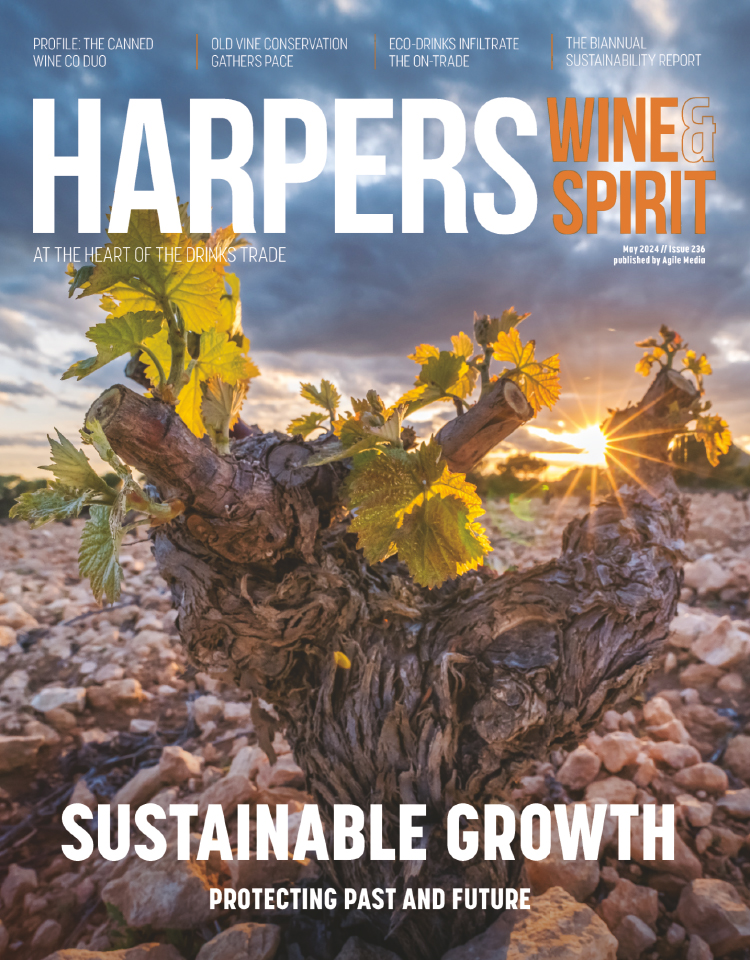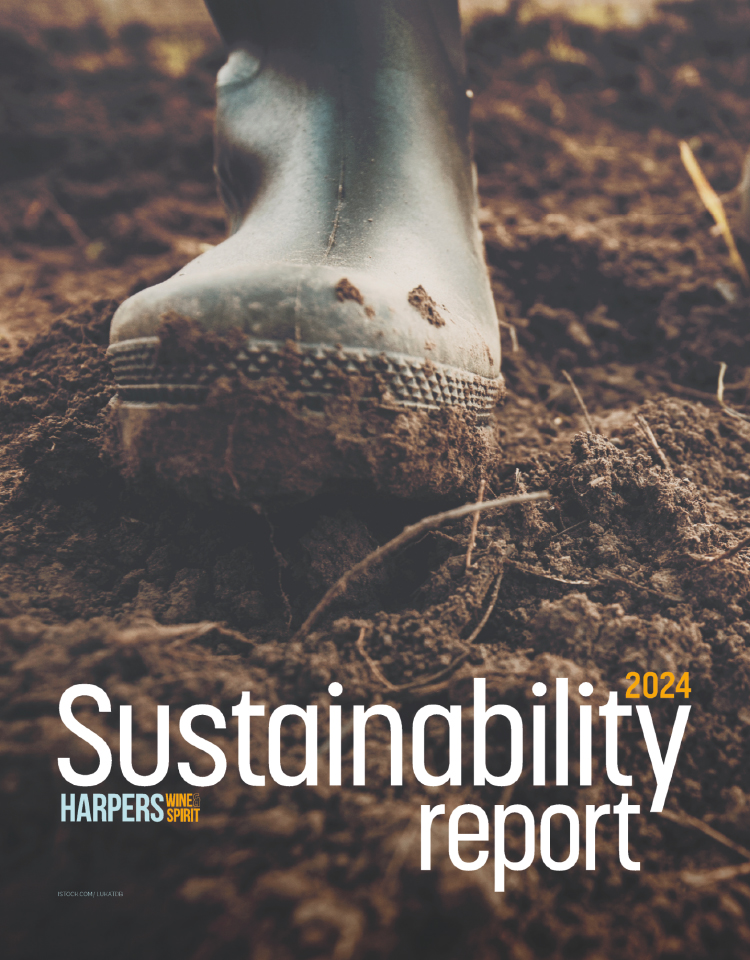From Douro drought to glut
The Port trade is suffering at both ends of the river Douro.
In the vineyards, farmers are experiencing the worst drought in living memory. In the lodges, there is a political glut of Port.
Quality brands, which dominate the UK Port trade, may suffer if insufficient volume for this year's harvest is authorised or if stocks of bankrolled Port are suddenly released on to the market. With two Port houses already sold this year - Osborne to Fladgate and Burmester to a Spanish bank - there is real concern in northern Portugal.
The demarcated region of the Douro is severely short of water. 2004 was reasonably dry, but last winter saw less than one third of the usual rainfall. No one has ever seen a winter this dry,' says Paul Symington. At Quinta do Bomfim, which provides much of the fruit for Dow, only 5in (127mm) were recorded between November and March, by comparison with a 15-year average of 16.3in (414mm).
While good bunches are evident this year, there is insufficient humidity in the soil, and already there are signs of leaf burn with temperatures at or above 40C (104F) regularly reported. The vines are under stress,' says Symington, whose firm sells 27% of the premium Port market. The group's 1,200ha holding provides 60% of their needs and depends on local farmers to make up the deficit.
In June, Portugal accused Spain of stealing its water, demanding e6 million in compensation after water levels in the Douro river fell below mutually agreed levels.
Port farmers cannot irrigate except for nursery stock in its first year. They rely on ground water and deep-rooted vines that normally survive. Unfortunately, the heat has led vines to produce smaller berries. At Vesuvio, river water is used for an experimental vineyard, but this is unusual.
Two problems have acerbated the situation: the restriction on the volume of Port that can be made, and the holdings of the Casa de Douro.
For several years, the more far-seeing shippers have purchased derelict land within the top A-B-graded districts and brought them into production by securing the planting rights to lower graded sites. A surprisingly high 60% of Port grapes are bought by the cooperatives, which make Port largely for a commodity market where retail prices are falling.
Lower yields are inevitable. The controlling Port body, the Instituto do Vinho do Porto, has announced severely lower authorisation for Port: a harvest size of 120,000 pipes of Port must, which is 151,724 pipes of Port, each of 550 litres.
This is a 5% reduction on last year and 9.4% below the level of sales in 2004. The aim is clearly to destock the trade and encourage shippers to buy from Port quango the Casa de Douro.
Several cooperatives are in technical bankruptcy - along with some Port companies - and both are happy to sell Port for cash flow, which will keep a lid on prices. Port is cheaper in Vila Nova de Gaia from ailing companies [than Port just made]. You can buy good wines from the 2000 harvest at the same price as [now, but] they are already nearly five years old,' revealed Adrian Bridge, MD of the Fladgate Partnership, which owns Croft, Delaforce, Fonseca and Taylor.
The Casa de Douro has a substantial holding of Tawny Ports. Each government tries to eliminate or at least reduce the Casa's inventory but has significantly failed. The Casa secured its stocks in 2000/01 against a loan provided by BPN, a noted private Portuguese bank. In shipping circles, it was regarded as a speculative move.
No interest on the loan has been paid, and rumours circulated that the bank would sell the stock at any price to improve its debt-to-asset ratio. Such action would profoundly destabilise the Port market internationally.
Three Port shippers have stepped in, promising to purchase stocks at market prices from the Casa de Douro over three years to stop such a forced sale. In return, Cruz, Sogrape (which owns Ferreira and Offley Ports) and Symington have been assured no sale will be made by BPN at knock-down prices.
The effect of reducing authorised yields will create significant problems for producers of top-graded Port. I would not be surprised if the price of Late Bottled Vintage were to increase by 10% in the coming 12 months or so,' says Bridge.
Shippers are campaigning to restructure the trade. Instead of treating all vineyards the same, they want lower authorisations for the low-graded E-F vineyards to allow larger crops from the higher-quality A-B sites.
However, most E-F sites are farmed by small holders with few vines and with little economic interest in the trade. The professional farmers are hit the hardest, since growing grapes is their business. As usual, politics underlies the decision-making, since there are 30,000-40,000 farmers in the Douro, but only 590 have more than 10ha of vineyard.





